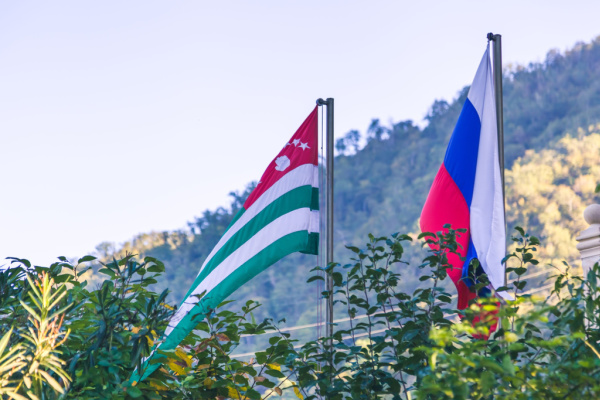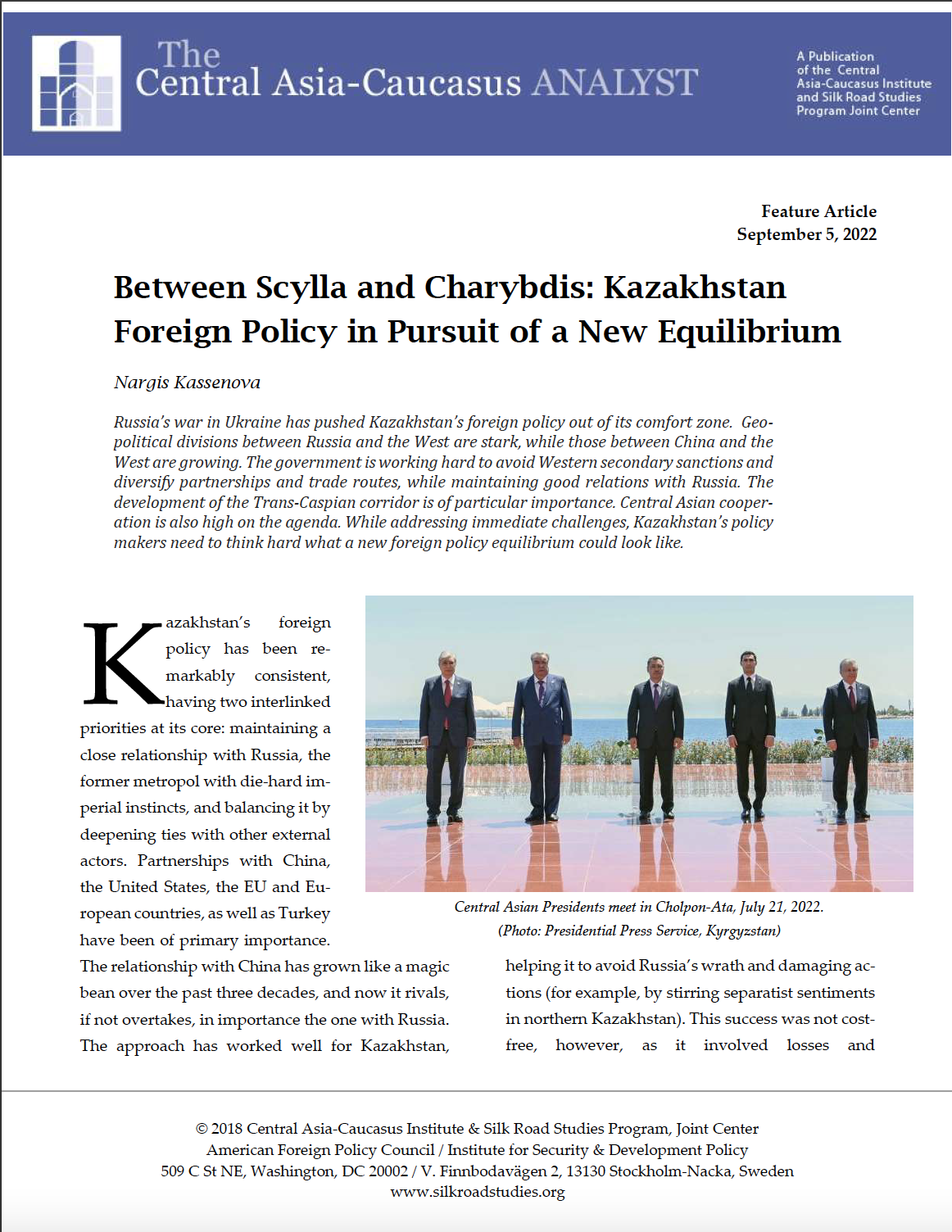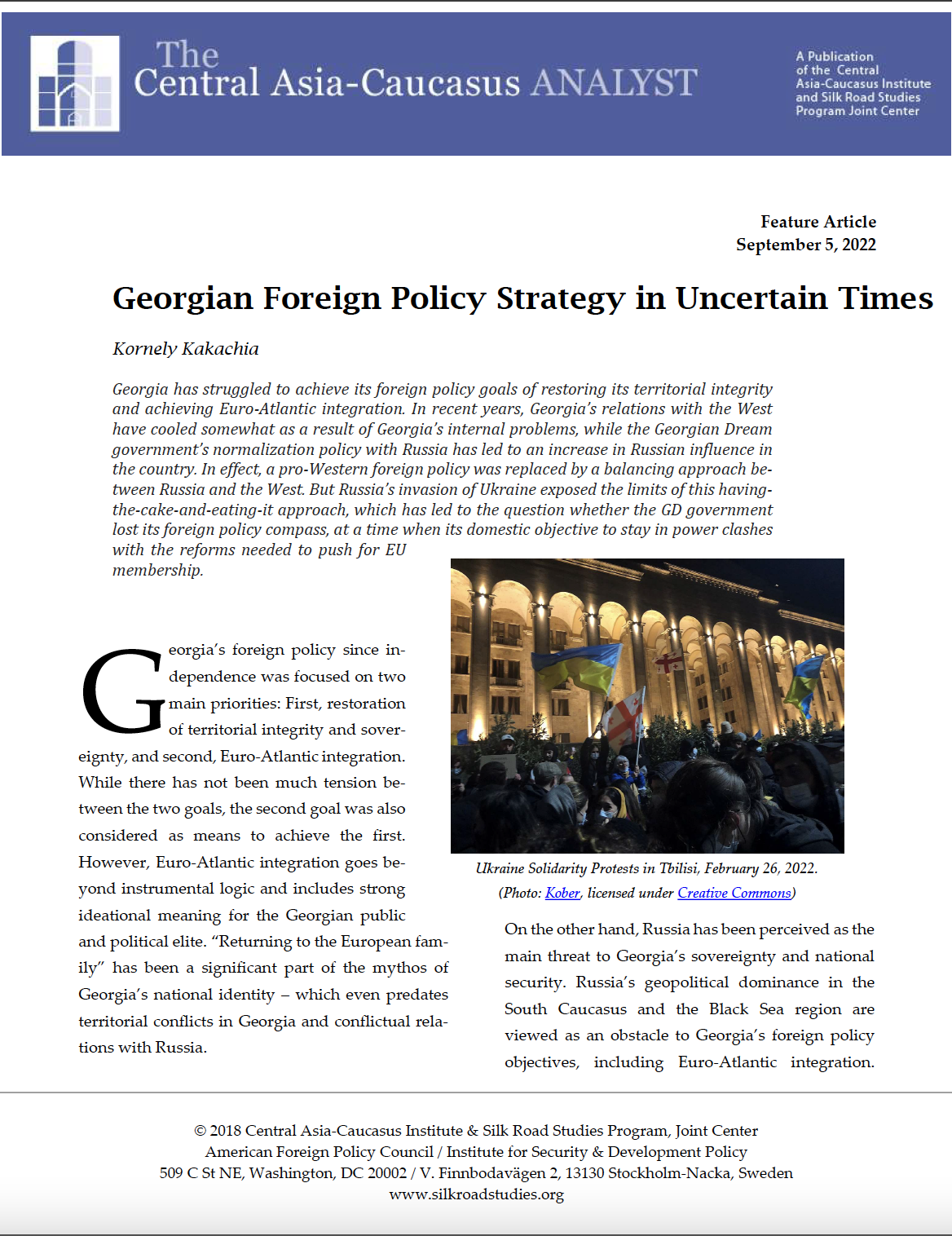Turkmenistan Lifts Its Head
By S. Frederick Starr
December 2, 2022
In recent months Turkmenistan has emerged from its self-imposed shell. Under its new president, Serdar Berdimuhamedov, it has launched a very active, though still cautious, foreign policy. While reaffirming its neutral status, which the UN recognized in 1995, it has intensified its relations with all the global powers and, significantly, with its neighbors as well. Both the U.S. and EU have applauded these initiatives and the new president’s strategic concept that underlies them. However, events unfold, Turkmenistan has decisively lifted its head, and will henceforth be a significant factor in regional and continental affairs and not simply a perplexing outlier.

Abkhazia and the Pitsunda Issue – Causes and Possible Consequences
By Tomáš Baranec
November 18, 2022
Abkhazia’s de facto authorities have agreed with Moscow that Russia will lease 186 hectares of land and 115 hectares of the sea in the city Pitsunda (Bichvinta in Georgian) for a period of 49 years. During the period in question, Russia is to receive direct ownership of leased buildings and infrastructure as well as lands that in the past constituted the private recreation complex of former Soviet leader Nikita Khrushchev. The deal, which might have severe consequences for the already limited factual sovereignty of the de facto government in Sokhumi, was met by protests from local activists and opposition figures.

President Mirziyoyev’s Strategic Urgency
By S. Frederick Starr
September 6, 2022
Speaking on Uzbekistan’s independence day, President Shavkat Mirziyoyev addressed a somber memorial ceremony dedicated to the “victims of political repression” during the Soviet era. He focused on the Uzbek reformers known as Jadids that were killed or suppressed in the early Soviet period. He also addressed at length Moscow’s singling out of Uzbekistan during the “cotton crisis” of the 1980s. This speech was remarkable because it effectively shifted the blame for Uzbekistan’s historical woes from Stalin or Communism to Russian imperialism. The same day, Mirziyoyev pledged to expand the power of the country’s armed forces, indicating the seriousness with which Uzbekistan’s leaders view developments in recent months, chief among them Russia’s invasion of Ukraine.

Between Scylla and Charybdis: Kazakhstan Foreign Policy in Pursuit of a New Equilibrium
By Nargis Kassenova
September 5, 2022
Russia’s war in Ukraine has pushed Kazakhstan’s foreign policy out of its comfort zone. Geopolitica divisions between Russia and the West are stark, while those between China and the West are growing. The government is working hard to avoid Western secondary sanctions and diversify partnerships and trade routes, while maintaining good relations with Russia. The development of the Trans-Caspian corridor is of particular importance. Central Asian cooperation is also high on the agenda. While addressing immediate challenges, Kazakhstan’s policy makers need to think hard what a new foreign policy equilibrium could look like.
Georgian Foreign Policy Strategy in Uncertain Times
By Kornely Kakachia
September 5, 2022
Georgia has struggled to achieve its foreign policy goals of restoring its territorial integrity and achieving Euro-Atlantic integration. In recent years, Georgia’s relations with the West have cooled somewhat as a result of Georgia’s internal problems, while the Georgian Dream government’s normalization policy with Russia has led to an increase in Russian influence in the country. In effect, a pro-Western foreign policy was replaced by a balancing approach between Russia and the West. But Russia’s invasion of Ukraine exposed the limits of this having the-cake-and-eating-it approach, which has led to the question whether the GD government lost its foreign policy compass, at a time when its domestic objective to stay in power clashes with the reforms needed to push for EU membership.




